THE WORLD MOST POPULAR HERBS – MOTHERWORT EXTRACT HEALTH BENEFITS
2018-05-09

Chinese motherwort, known as yi-mu-cao, and the common European motherwort serve as excellent examples of plants used for parallel purposes by divergent cultures, whose uses are confirmed by modern research.
Motherwort is a plant. The parts that grow above the ground are used to make medicine.
Motherwort is used for heart conditions, including heart failure, irregular heartbeat, and heart symptoms due to anxiety. It is also used for the absence of menstrual periods, painful menstrual periods, menopause symptoms, intestinal gas (flatulence), cancer, sleep problems, asthma, and over-active thyroid (hyperthyroidism).
Some people apply motherwort directly to the skin for wounds, itching and shingles.
Some of its other common names are Chinese Motherwort, Cheneuse, Cardiaire, Cardiaque, Yi Mu Cao, Oreille de Lion, Mother’s Wort, Leonuri cardiacae herba, Queue de Lion etc.
Where does Motherwort grow?
Which part of the plant Motherwort is useful?
Motherwort has an unpleasant odor (to some extent) and pretty bitter taste. All parts of this plant, from the stem to the stalk, and leaves to the flowers are used for making herbal powders, extracts, tinctures, and capsules. The dried parts are also used to make herbal tea.
What gives the therapeutic properties to Motherwort?
Motherwort is a vasodilator. Motherwort is also known for its hypotensive (lowering the blood pressure), sedative, anti-inflammatory, antioxidant properties and antimicrobial activity. Motherwort is an excellent source of alkaloids and flavonoids. Other key ingredients that give the therapeutic properties to motherwort are malic acid, citric acid, iridoids, oleic acid, tannins, leonurine, terpenoids, carbohydrates, choline, and fenolglykosid. It also has some bitter substances.
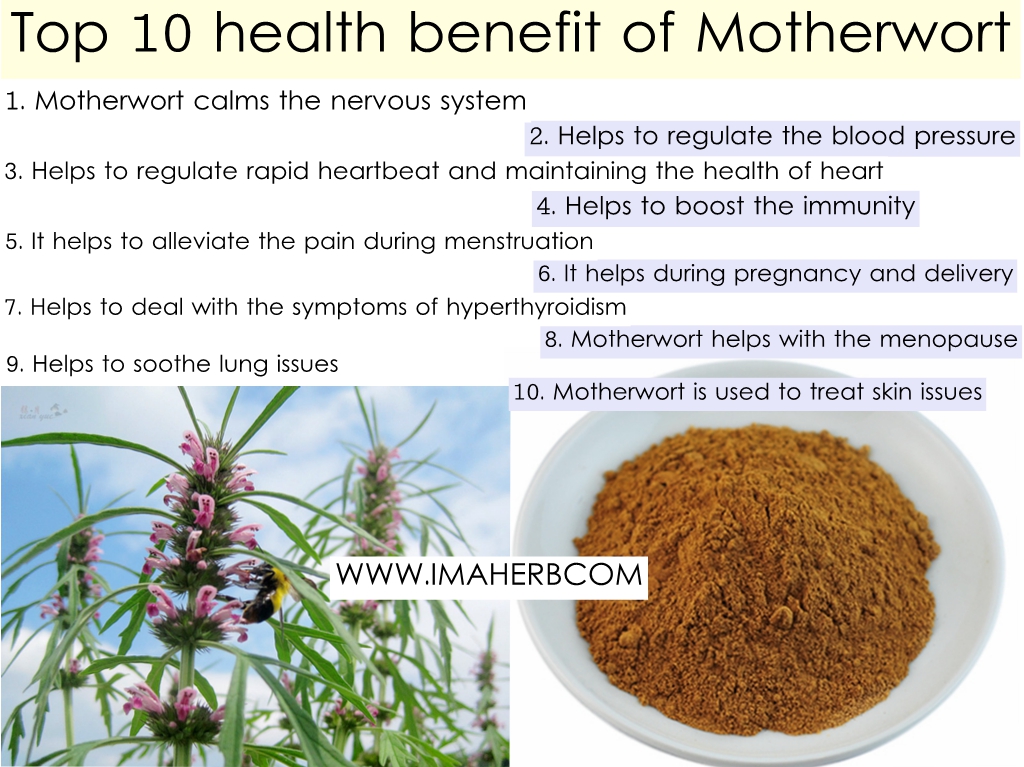
Top 10 health benefit of Motherwort
1. Motherwort calms the nervous system
2. Helps to regulate the blood pressure
3. Helps to regulate rapid heartbeat and maintaining the health of heart
4. It helps to alleviate the pain during menstruation
5. It helps during pregnancy and delivery
6. Helps to boost the immunity
7. Helps to deal with the symptoms of hyperthyroidism
8. Motherwort helps with the menopause
9. Helps to soothe lung issues
10. Motherwort is used to treat skin issues
Side effects of Motherwort – Are there any safety concerns or risk factors associated with Motherwort?
- It is better to stay away from Motherwort during pregnancy, irrespective of its ability to cure the anxiety and stress during the pregnancy. It contains an alkaloid stachydrine, which may set off the uterine contraction.
- A person who is experiencing blood clotting disorder and cardiac issues should avoid using Motherwort as it is a vasodilator and heart stimulant, which adversely affect their condition.
- Persons who are very sensitive can contract contact dermatitis through Motherwort.
- Women with heavy menstrual bleeding should avoid using Motherwort.
- Persons who are prone to gastric allergies should not consume Motherwort without consultation with a doctor.







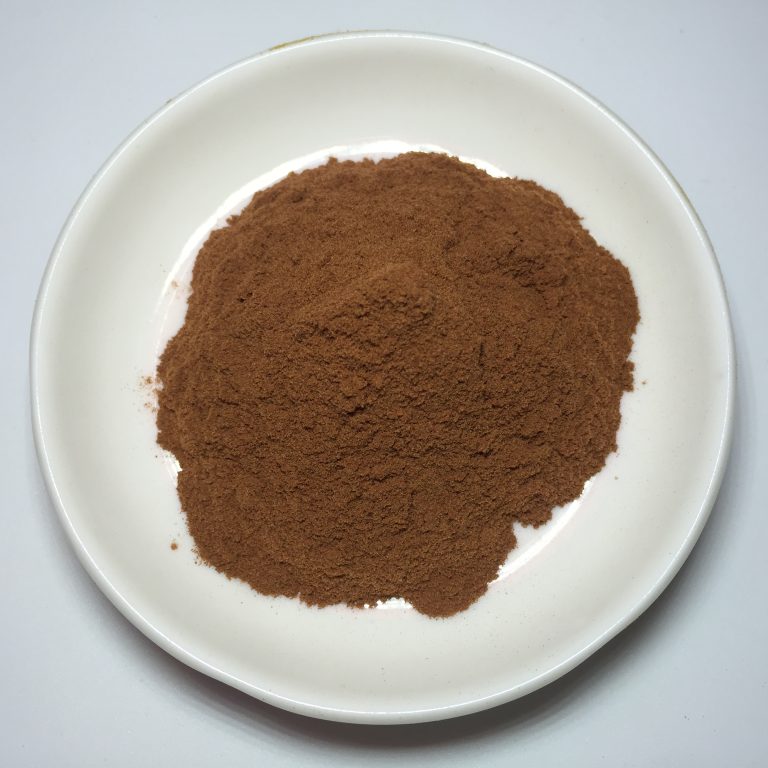 Imaherb China manufacturer supply Apple Extract Powder
Imaherb China manufacturer supply Apple Extract Powder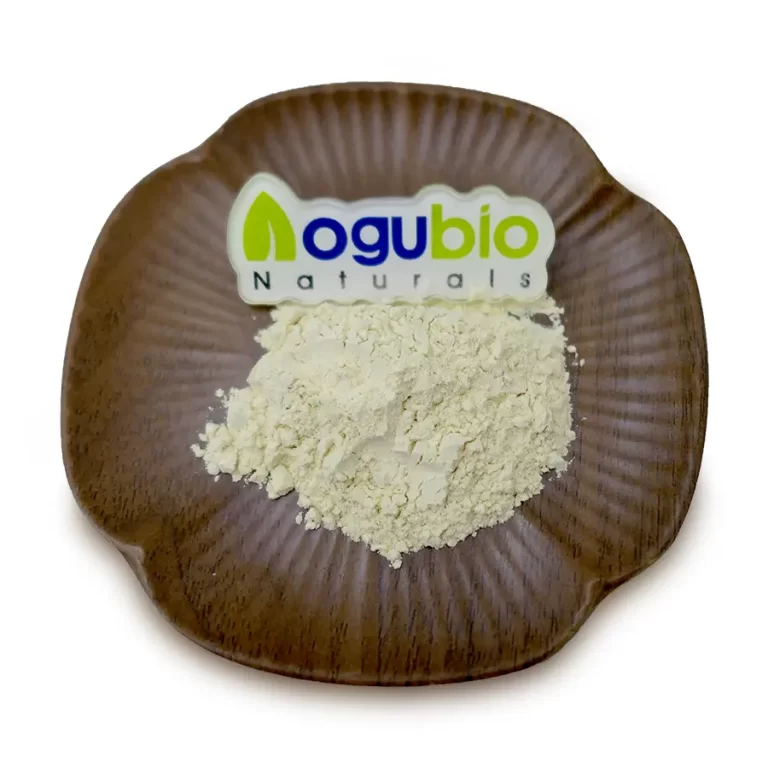 Imaherb China manufacturer supply Apigenin Powder 98%
Imaherb China manufacturer supply Apigenin Powder 98%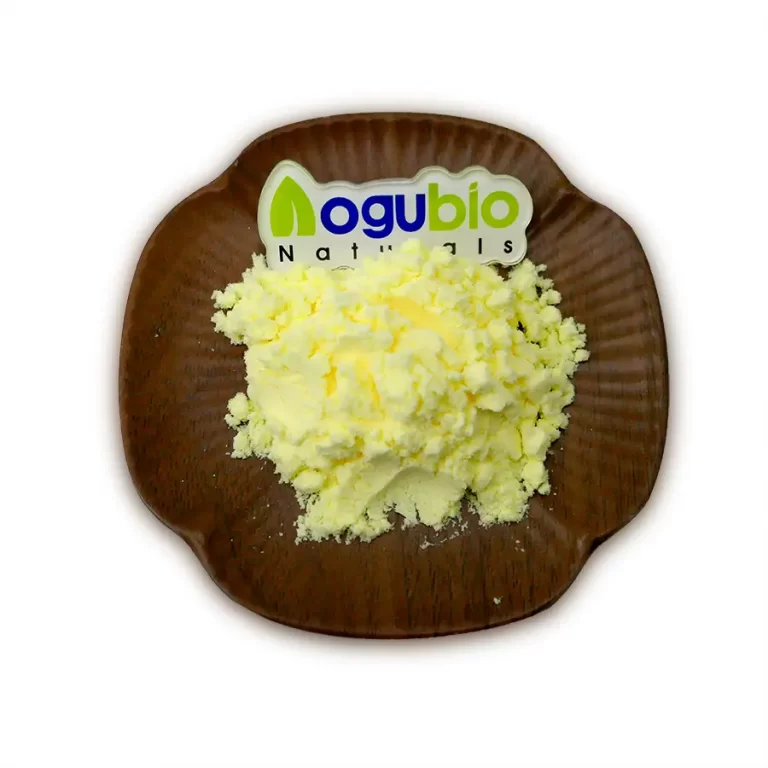 Imaherb Factory supply Alpha Lipoic Acid Powder CAS 1077-28-7
Imaherb Factory supply Alpha Lipoic Acid Powder CAS 1077-28-7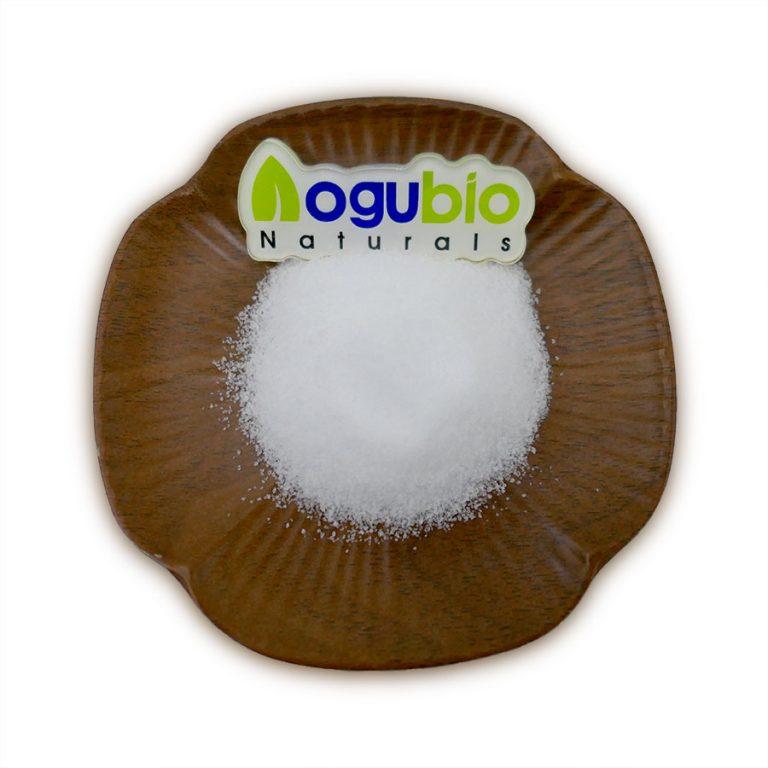 Imaherb Factory supply Alpha GPC Powder CAS 28319-77-9
Imaherb Factory supply Alpha GPC Powder CAS 28319-77-9 Imaherb Factory supply Alliin Powder 98% CAS 556-27-4
Imaherb Factory supply Alliin Powder 98% CAS 556-27-4 skype
skype Sales Manager
Sales Manager Rebekah
Rebekah Rachel
Rachel Miranda
Miranda Camilla
Camilla
 Sales Manager
Sales Manager